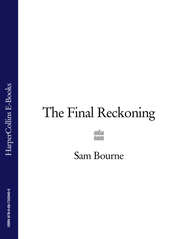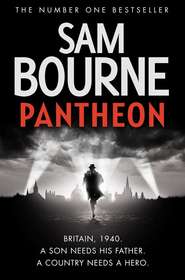По всем вопросам обращайтесь на: info@litportal.ru
(©) 2003-2024.
✖
To Kill the President: The most explosive thriller of the year
Автор
Год написания книги
2019
Настройки чтения
Размер шрифта
Высота строк
Поля
‘Well,’ she smiled. ‘It’s different. You can certainly say that.’
‘Heroic of you to stay on, I gotta say. A few of us were together the other night and we were saying, “OK, could not do that myself, but hey: relieved one of the good guys is there, fighting the good fight.”’
Maggie smiled weakly, unsettled by the notion of a ‘few of us’, out in Washington, talking about her. ‘Well, I do what I can.’
‘Though what the hell is he playing at with the North Koreans? It’s like every time he sees a hornets’ nest, he just has to jab it with a stick.’ He illustrated his point, by helpfully jabbing the air with an imaginary stick. ‘And that stuff he said about black people not being the same as “real Americans” ’cause they never chose to come here, I mean, does he even listen to the words that come out of his mouth?’
Maggie’s head began to dip. It wasn’t his fault. Her friends talked the same way to her whenever they had the chance. So did Liz, obviously. And the woman who cut her hair. Pretty well everyone but Richard. She couldn’t disagree with them on the specifics. They were right. What the President said at his rallies, or on TV or online was – eight times out of ten – either appalling or a lie. Or both. She could not defend it.
It was obvious to anyone looking in from the outside. She could not possibly stay. But what none of them understood was why she could not possibly leave.
She stopped listening. But while her head was down, she was struck by Ben Jackson’s shoes. Absolutely nothing interesting about them at all: standard-issue, Washington-man black brogues. Except what set them apart in a town where high-achieving men always wore ironed shirts and polished footwear was that they were splattered with mud.
Jackson was still talking, making a point about the President’s business interests, but she interrupted. ‘You were at the funeral, right?’
‘What? Yes.’
‘Just now? You came here from there?’
‘Yes.’
‘And that’s how your shoes got muddy?’
‘What?’ He looked down. ‘Oh yes. Really wet out there. And you have to go right by the graveside, and shovel in the earth. No offence, but it’s actually kind of medieval, the whole …’
But Maggie wasn’t listening. She was remembering. She was seeing again the photograph they had shown her at the Chief Medical Examiner’s office.
Maybe when other people looked at photographs of a man whose brains had been blown out, they couldn’t help but look straight to the head. But Maggie had kept her examination of Frankel’s head as brief as she could get away with. When Fong and her colleague had displayed the photographs of the body, Maggie had found her eye drawn in the other direction – at the dead man’s feet.
Something about them had struck her as odd at the time, but she had not been able to put her finger on it. Until now.
Last night had been wet: spring rain, gentle – even romantic when she and Richard had heard it against the windows – but on and off for hours. The pictures from Rock Creek confirmed that those showers had not been confined to Dupont Circle: inches away from Frankel’s body the pathways had grown muddy, the hard ground softened. And yet his shoes carried not a trace of dirt. They were as pristine as if they’d touched nothing more than the carpet of the West Wing. He would have had to have walked very gingerly through the park to keep them in that condition and, even then, he would have picked up at least a spot or two. But why would a man take such care if he were about to end his life?
Now she tied that together with the other oddity she’d spotted among the last photographs the pathologist had shown her: the images of the interior of the car. Frankel was a tall man. Maggie had known that much just seeing him around the White House. The document she had glimpsed at the Chief Medical Examiner’s office described him as six foot one. And yet the photograph of the car showed the driver’s seat brought forward, close to the steering wheel. That was how Liz’s car always looked. Whenever Maggie visited her in Atlanta and borrowed the keys, she would always have to slide the seat back to make room for her legs, which were much longer than her sister’s. There was no way Frankel could have driven his own car with the seat in that position.
No, Maggie was certain. Someone else had driven Frankel to Rock Creek Park. And the doctor had not walked to the place where his body was found. Maggie imagined him carried, perhaps unconscious, over the shoulder by one man or else lifted by a couple of men, clean off the ground. One of them, wearing gloves, must have put the gun in Frankel’s mouth or under his chin and forced his finger on the trigger. But who would have done that? And why?
And what about the police? The Medical Examiner’s office must have seen what she had seen. They had to have done. Surely they’d passed both anomalies on to the police or, if they hadn’t, they must have assumed that the police themselves had spotted them. They were obvious, weren’t they? They would have been grounds enough to have demanded a more detailed autopsy at the very least, to run a few extra tests.
But that couldn’t have happened and now it could never happen. Frankel had been buried a few hours ago, swiftly, in accordance with Jewish custom. The family must have demanded it. Though why did the Chief Medical Examiner agree to it, when there were clearly unanswered questions that stood in the way of a straightforward ruling of suicide?
Ben Jackson had lost interest. Spotting someone else, he gave Maggie another peck on the cheek and insisted they should have lunch. She nodded goodbye and looked ahead in the shuffling queue, still moving in only the fractions of inches. Behind her she could hear a couple, perhaps in their thirties.
‘… and Laura were so close. Do you remember the speech he gave at her wedding? And the way her mom was begging him to sit down, because he’d gone on too long?’
‘He was so proud.’
‘I’m not sure how she’ll get over this.’
‘And what about Sheryl? This won’t be—’
But the rest was lost as they were swallowed up in the big hug of another friend.
Maggie looked ahead and felt that sensation which came to her less often these days, but could still leave a sting. No matter how many years she had lived in this country, she did not have roots here the way these people had roots; she could not fill a roomful of friends and relatives like this. In Dublin, yes. But not here. This place would never be home.
By now, it was nearly her turn. She had made her way to the front of the room, where five people were sitting on five low chairs. She guessed that three were Dr Frankel’s adult children – including the two daughters, Laura and Sheryl – one was his wife and the older man must have been a brother. This too she remembered: these were the people deemed to be the official mourners, the immediate family.
The man in front of her worked his way across the group, shaking hands with the others before lingering to talk to the Frankel son. He leaned in for an awkward hug with his bereaved friend, who remained seated.
Now Maggie stepped forward, introducing herself to the son, daughters and brother, explaining that she worked at the White House with their father and that she was sorry for their loss. When she reached the wife, she shook her hand and said, ‘Mrs Frankel, I am so sorry. This must be so hard.’
The woman nodded, but said nothing.
Maggie tried again. ‘None of us can understand it. Not at all. It seems so … out of character.’
Helen Frankel clasped Maggie’s hands and said, ‘Of course it’s out of character! Jeffrey would never do such a thing. Never!’
‘But the police say the gun was his.’
‘Mine actually. He didn’t want it in the house. He never picked it up. It was me,’ she sniffed. Maggie saw her eyes were rimmed red.
‘It was you?’
‘Yes, me. Who said we should have a gun. To keep us safe.’ She shook her head, furious with herself. She was still holding onto Maggie’s hand. ‘Such a terrible mistake. Terrible.’
Then, pushing to confirm what she already knew, Maggie nodded and said, ‘And with Sheryl’s wedding coming up too.’
At that the woman squeezed Maggie’s hand harder. ‘This is it, you see. It makes no sense. You know Jeffrey. He lived for his family. He would not have missed his baby daughter’s wedding. Not in a million years.’
‘He had everything to live for.’
‘He wanted to see Sheryl have children. He loved being a grandfather, you know that.’
‘It makes no sense.’
‘He loved life! This was a man who loved life.’
Maggie could sense the couple behind her, edging closer. They’d finished their conversations with the other mourners and were now giving her the tacit, but unmistakable signal to wrap things up and let someone else have their turn. It was time to make her move.
Looking directly into the widow’s raw eyes, she said, ‘What I’m trying to understand is whether anything happened at all, maybe something out of the ordinary, that could have, you know, distressed him.’
At that moment, the woman glanced over Maggie’s shoulder, acknowledging the presence of the couple behind her. Maggie feared the moment had been punctured, the spell broken. She tried to lock Helen’s gaze back onto hers. ‘Do you remember anything, Mrs Frankel? Anything that happened to Jeffrey in the last few days that might have distressed your husband?’
She looked down. ‘He seemed happy. He was talking about a vacation in Europe, after the wedding. We’d never been to Rome. Not together, I went once, before we were married but—’
‘Could something have happened at work, perhaps?’
‘He didn’t really talk about that. He didn’t bring his work home.’











